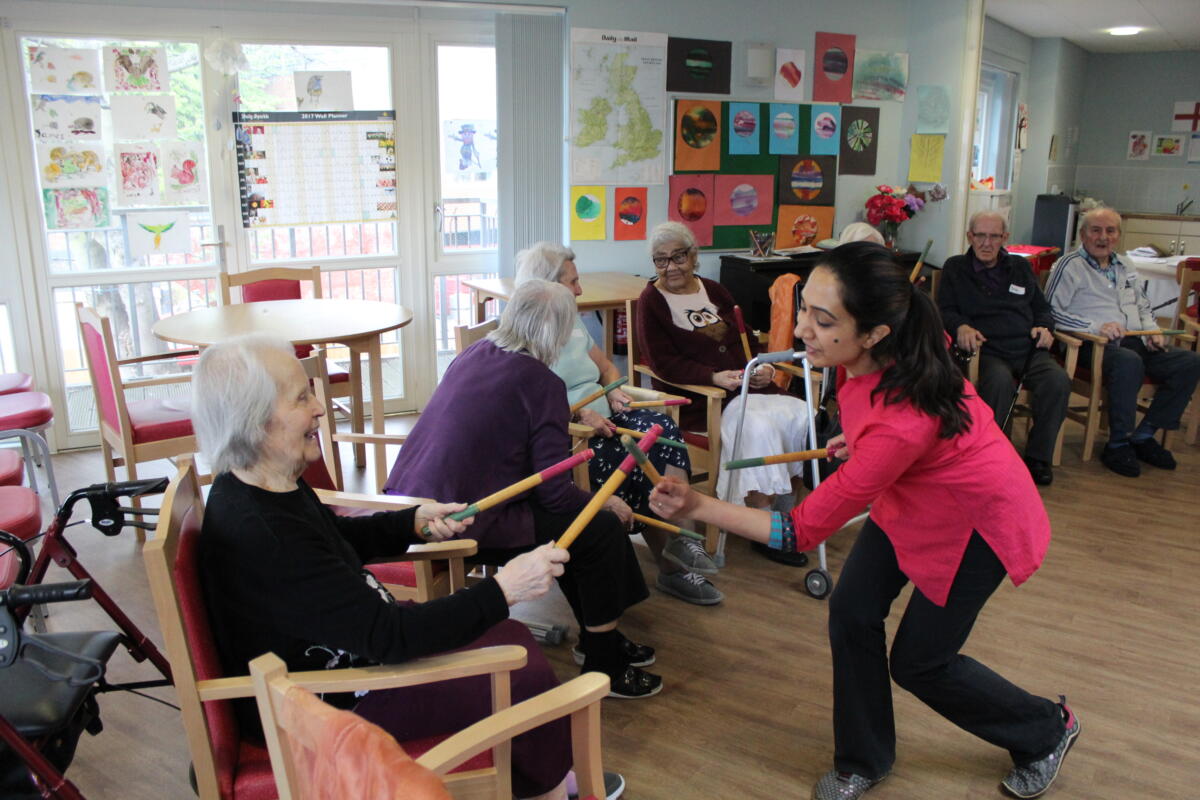Dance Well | Engage International Conference

On Tuesday 13 November, Dance Well Project Officer Claire Farmer and Dance Well Artist Archita Kumar, travelled to Manchester to present at the Engage International Conference – A social prescription: Collaboration through arts, health and education. Following Teresa May’s recent announcement of the first cross-government loneliness strategy (Gov.uk, 2018), social prescription is a hot topic. At the recent Social prescribing: coming of age conference at the King’s Fund, Health Secretary Matt Hancock talked about the value of the arts in improving the nation’s health and wellbeing, and therefore the importance of arts on prescription.
“Do you still have to convince people of this? I mean, it’s obvious it works!”
Akademi were therefore delighted to be invited to present at the Conference to discuss Dance Well, our project utilising South Asian dance forms to improve the health and wellbeing of older adults in the community and in hospitals. It was wonderful to see many art forms represented in the programme of talks and workshops; from music and choirs, to visual arts and dance. Representatives were also present from museums, care homes, art galleries and health charities, including Dance Well partners Imperial Charity, with whom we run workshops for older adults at Charing Cross Hospital.
During Akademi’s session Claire provided a short overview of Dance Well and its impact upon the participants’ physical and psychological health, as well as social engagement and interaction with hospital staff. This was followed by a 30-minute dance workshop with Kathak dance artist, Archita Kumar (pictured above at Wellesley Road Care Home), explaining adaptations made for different abilities throughout. Participation in the activity was an important component of our session, to allow those who hadn’t previously experienced dance, or specifically South Asian Dance, to understand the impact it can have on a person’s wellbeing, and how it can be integrated into community and healthcare settings. The session also discussed how important it is to engage with clinical staff to ensure the dance artists reach the patients who would really benefit from the workshops. And to also invite clinical staff to participate in the workshops and in so doing, develop a different relationship with the patient.
It is clear not only to the artists working in arts for health, but also the many participants, visitors and staff who enjoy this work, just what an impact it can have on health and wellbeing. As one participant asked “Do you still have to convince people of this? I mean, it’s obvious it works!” With discussion around social prescription on the rise, perhaps the time has come for the arts to really pave the way for the health and wellbeing of the nation.